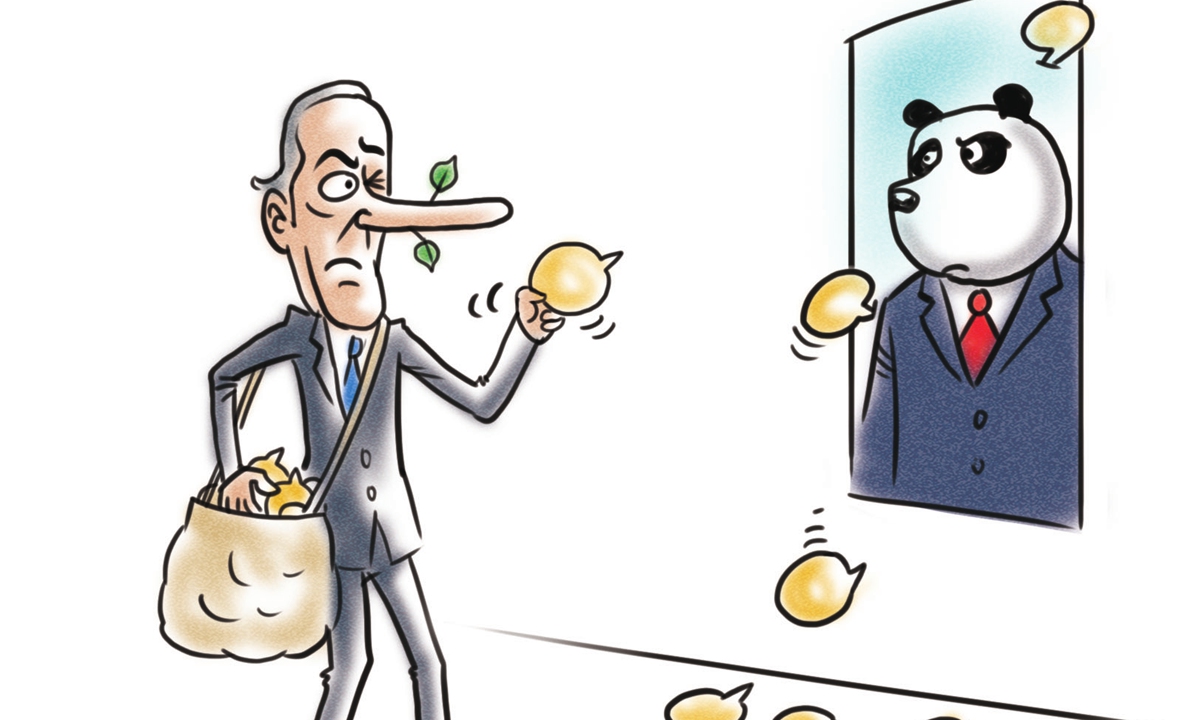Nuisance Western alliance targeting China should fix their houses first
By Zhao Junjie Source: Global Times Published: 2020/12/8 16:48:42

Illustration: Liu Rui/GT
In June of this year, over 100 cross-party parliament members from countries including the US, the UK and Sweden formed the Inter-Parliamentary Alliance on China (IPAC). It seems like a political forum which coordinates Western countries' policies toward China. However, it is in fact a Western value-based anti-China alliance.
On December 1, IPAC published an article entitled, "IPAC leads global campaign to buy Australian wine in stand against Chinese government bullying." We should be vigilant toward the increasing moves of this alliance.
The establishment of IPAC has provided a stage for various anti-China forces in the West. This seemingly loose organization has been noisy in Western media recently. It has mainly sent two messages. One seeks to smear and stigmatize China as a bully. The second calls for Western countries to jointly contain China's rise.
In the past, Western countries had sought to criticize and suppress China separately, without forming a united front to present this spin as international public opinion. But now, their anti-China voices and actions are forming closer knit circles following the emergence of anti-China coalitions armed with the so-called Western values.
To begin with, the actions of the IPAC are primarily based on the prioritization of their own national interests. Under the double whammy of COVID-19 and economic recession, even Western powers like the US are trapped, let alone those small and medium-sized countries in Europe. Social instability, economic recession, intensification of conflicts and ethnic division in Europe and the US make them eager to find someone to blame for all these problems. Targeting and accusing China will undoubtedly divert domestic attention from these problems.
This explains why we now see so many malevolent Western politicians using all kinds of means to bash China no matter what Chinese authorities calmly say or explain.
Second, US policymakers are increasingly making the containment and suppression of China the main focus of their China policy. Thus they feel the need to make global alliances in their anti-China containment strategies.
The IPAC, led by Washington, is taking full advantage of the latest internet media technology to spread their propaganda against China with smears.
These wild narratives may impress some audiences that the West is now fully allied against China. It is widely known that the US president-elect Joe Biden underlines values of democracy and Washington-led multilateral mechanisms. It is expected that when Biden takes office, the new US government will attach more importance to the IPAC. We can perhaps expect to see the alliance play a bigger role in dealing with China.
Third, the IPAC has built up momentum on the internet. Apart from receiving increasing attention from the international community, it remains unknown how much it will affect their governments' China policy. After all, lawmakers participating in the alliance are still a minority in their parliaments. They tend to be ring-wing populists with prejudices against China. As long as more establishment lawmakers have rational acknowledgement toward China, their governments and peoples will not be hijacked by this hawkish minority of malcontents.
In face of the anti-China rhetoric stirred up by the IPAC, China must take a tit-for-tat stance. This alliance will exploit all kinds of opportunities to inflame hysterical public opinion. Yet the public in the West will not always be blind to these sleight of hand PR stunts. They will eventually find out the truth.
The West's continuously passing the buck to China cannot fundamentally tackle the problems it has encountered. By contrast, it is an actual portrayal of the difficulties and intensified contradictions that the Western capitalist system is being confronted with today.
The author is a research fellow at the Chinese Academy of Social Sciences' Institute of European Studies. opinion@globaltimes.com.cn
RELATED ARTICLES:
Posted in: VIEWPOINT